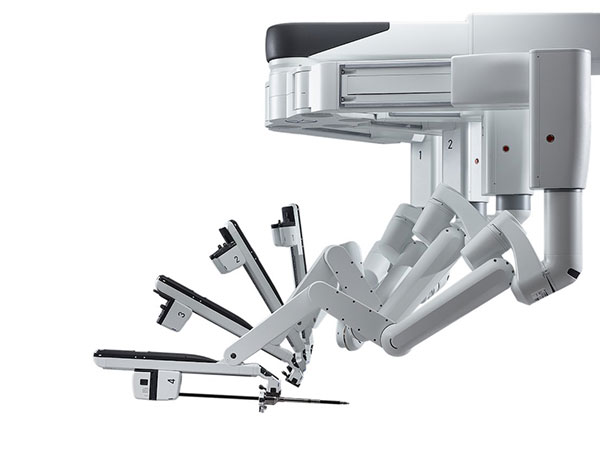Foothill Regional Medical Center Hits 300 Robotic Surgeries Milestone

Foothill Regional Medical Center announced today it has reached the milestone of 300 robotic-assisted surgeries using da Vinic Xi and Mako SmartRobotics. The milestone was reached sooner than expected because surgeons trained to use the equipment readily took advantage of the state-of-the-art technology for their patients as soon as it became available to them.
The benefit of robotic surgery is that it combines a surgeon's expertise with robotic precision. Although results vary, patients typically experience reduced post-surgery pain, fewer and smaller scars, faster recovery, and shorter hospital stays.
"We are thrilled to hit this milestone so quickly," said hospital CEO Araceli Lonergan. "We are one step closer to realizing our vision of providing robotic procedures to Orange County residents across the full spectrum of surgery, from general, to gynecological, to urology. It's exciting to offer this state-of-the-art technology to our patients."
The da Vinci Xi platform was launched at the Tustin-based Foothill Regional in February and marked its 100th procedure within six months. The general surgeries performed robotically include hernia, gall bladder, bowel, and surgical weight loss, among others. The use of the Vinci Xi robot allows many surgeries to be performed on an outpatient basis.
The Mako SmartRobotics technology was made available in December 2021 and marked its 200th procedure in nine months. Surgeons use the advanced orthopedic technology for total hip and knee and partial knee replacement surgery.
"We are proud to be one of the first in Orange County to offer this SmartRobotics," said orthopedic surgeon Gina Mosich, MD. "With Mako, I know more about my patients' anatomy than ever before, and I'm able to cut less. For some patients, this can mean less soft tissue damage, and for others, greater bone preservation."
According to the American Academy of Orthopedic Surgeons, total knee replacements in the United States are expected to increase by 189 percent and total hip replacements by 171 percent by 2030.
